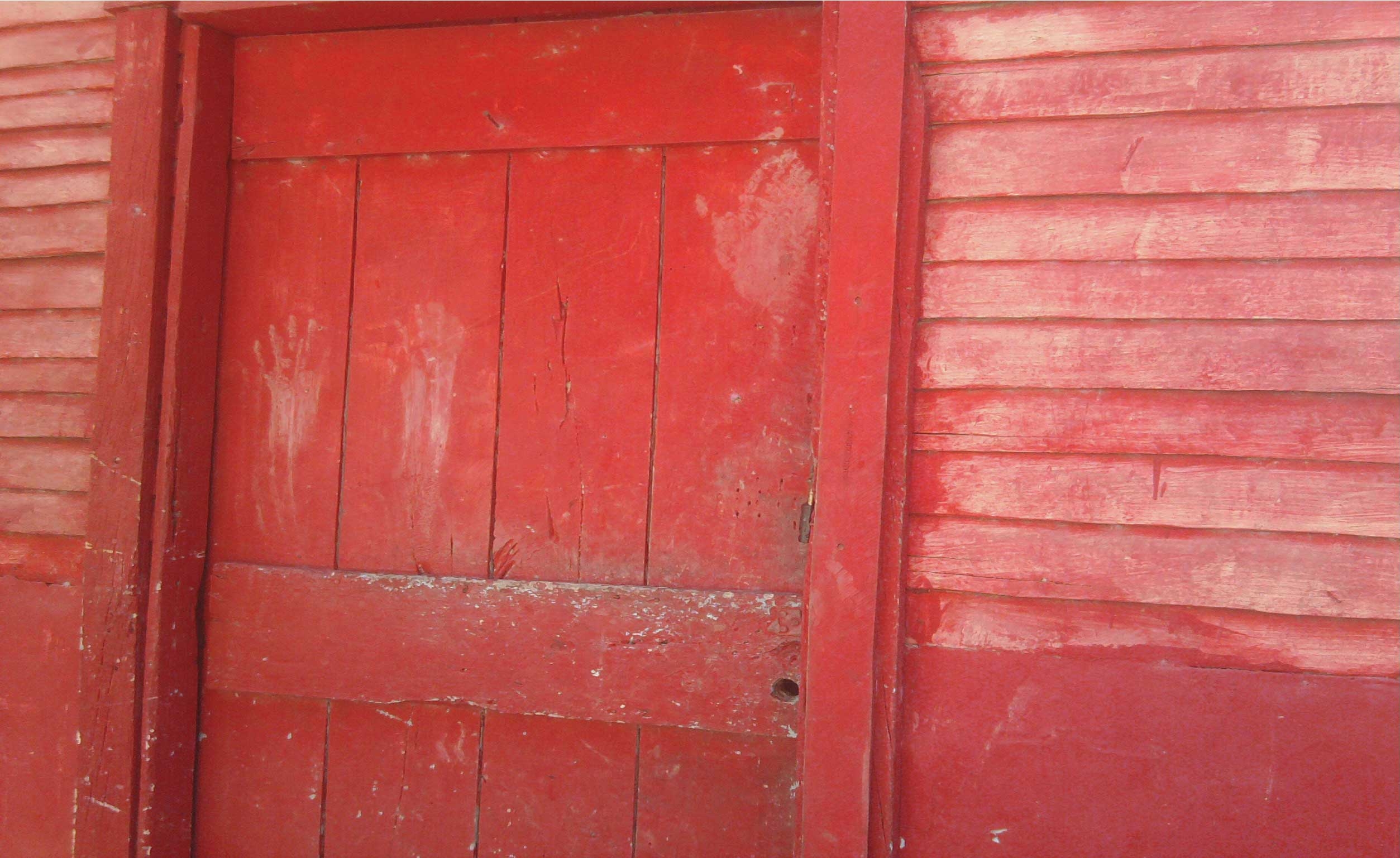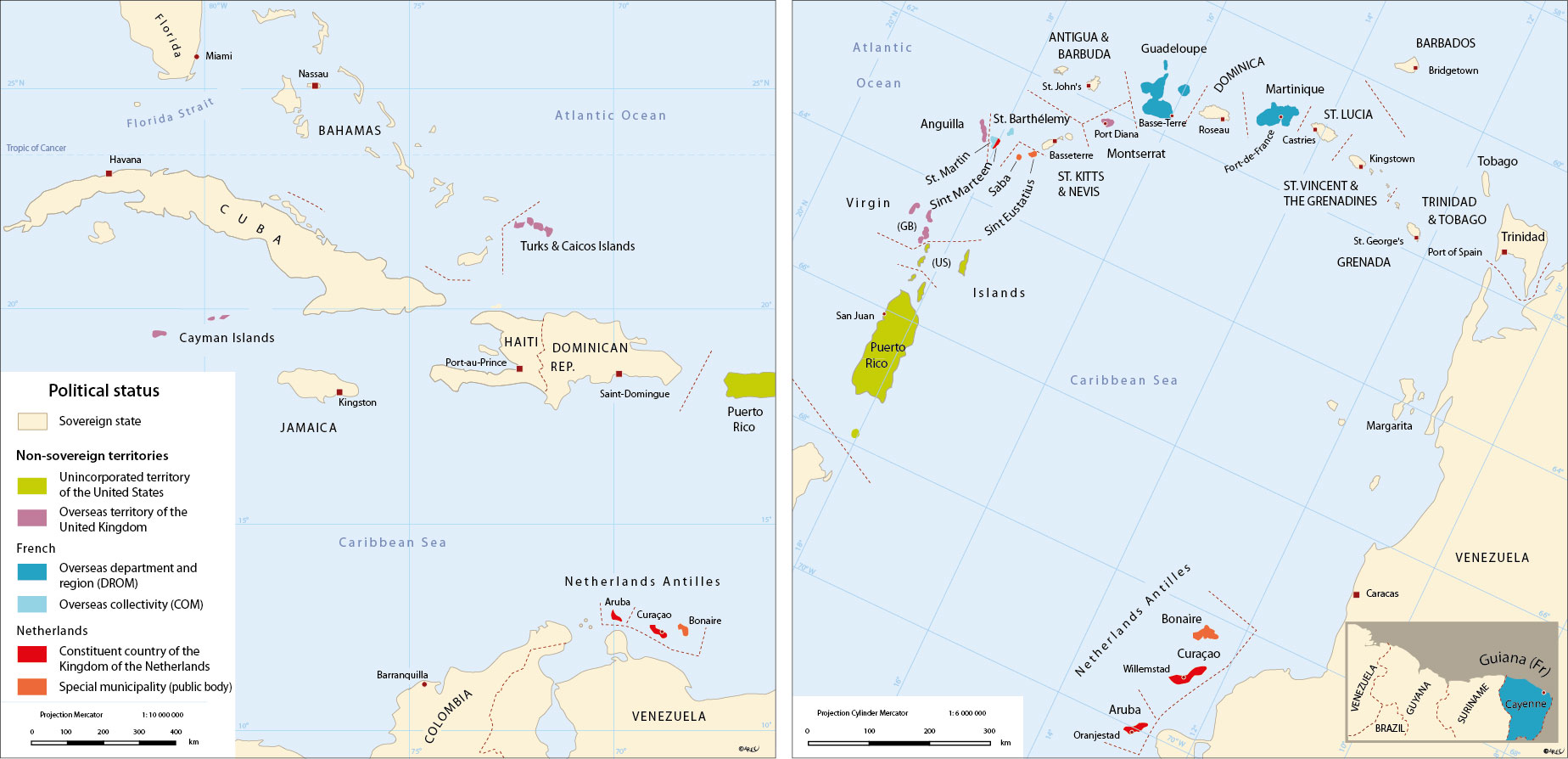
- AEC et crise mondiale (2012) FR
- Abolitions of slavery
- Armées (2005) FR ES
- Armées (2015) FR ES
- Backyard of the United States
- Carribean Basin and global economic crisis (2008)
- Eric William's Pan-caribbeanism
- Essequibo : territoire "réclamé", territoire convoité FR
- Europe in the Caribbean (2007)
- Géopolitique de la Guyane FR ES
- Géopolitique de la Martinique et de la Guadeloupe FR ES
- Independence
- Les frontières FR ES
- Les processus de «réincorporation nationale» et de créolisation FR ES
- Mosaïque institutionnelle (2015) FR ES
- Mosquitia protectorado Inglés en colonias “independizadas” ES FR
- Political status (2012)
- Rapprochement Cuba - Etats-Unis FR
- Statuts et carte politique (années 1990) FR
- Tensions ethniques FR ES
From helping Cuba free itself from Spain in 1898, and Panama to break away from Colombia in 1903, the United States has long meddled in the affairs of the Caribbean Basin. Often intervening militarily, either directly or indirectly in defence of its own strategic interests, regime change seemed a fact of life.
The last half century has seen a radical upheaval in the political landscape of the Caribbean region. During the 1950s and 1960s, independent states, whether continental or insular, were with few exceptions characterized by civilian or military dictatorships and political regimes punctuated by ‘coups d’État’ (‘pronunciamentos’). Tyrants systematically bled their countries; for example Trujillo, the megalomaniac dictator of the Dominican Republic, the Duvaliers in Haiti, Fulgencio Batista in Cuba, or the Somoza clan who finished up controlling a fifth of the wealth of Nicaragua. The Lesser Antilles, Jamaica, Puerto Rico remained as colonies or had barely emerged from that status. In all cases, poverty and indeed the lack of political expression, was the order of the day.
The 1960s and 1970s simultaneously witnessed the Cuban revolution taking a socialist path forward, as well as the birth of independent Anglophone states. In these latter former colonies, strongly anglicized elites and transitional periods of autonomy facilitated the creation of viable and stable democracies, inspired by the British Westminster model after Independence.
In the 1980s, the whole of isthmic Central America would see guerrilla warfare, politically, socially, even ethnically motivated (Guatemala) which tore apart the countries of Nicaragua, Salvador and Guatemala. The Castro regime becomes progressively more authoritarian.
At the start of the 1990s, a dynamic of pacification affected the region, successfully bringing an end to the troubles of Nicaragua in 1990, El Salvador in 1992, then in Guatemala in 1994, allowing the beginnings of democratic change. Everywhere, the most brash dictatorships were swept from office (Somoza in 1979, Duvalier in 1986). Old independent states, or young states recently decolonized, adopted democratic instruments of government. New constitutions saw the establishment of parliamentary regimes, the separation of powers, universal suffrage and respect for civil liberties. In the event, the latter, so centrally important, was not always respected.
Non-sovereign states also benefitted from democratic regimes. The French departments in America, elected deputies and senators who sat in the national legislative assemblies as well as in their local executives. The American, British and Dutch dependencies enjoyed a large measure of autonomy: each possessed its own local government, endowed with elected authorities and extensive powers.
This success should not be allowed to conceal the dysfunctions and frailties. Narcodollars corrupted the political life of many countries. Occasionally, former armed activists took refuge in banditry and drug trafficking. In Cuba, many prisoners of conscience languished in prison. Jamaican political life suffers from chronic violence, the vote-catching activities of political parties, and their notorious links with sects, mobsters and gangs from the ghettos. In Haiti, violence and political instability are the rule. In many places, the situation will remain explosive as long as fundamental social inequalities are not vigorously addressed.
top
|
  |













